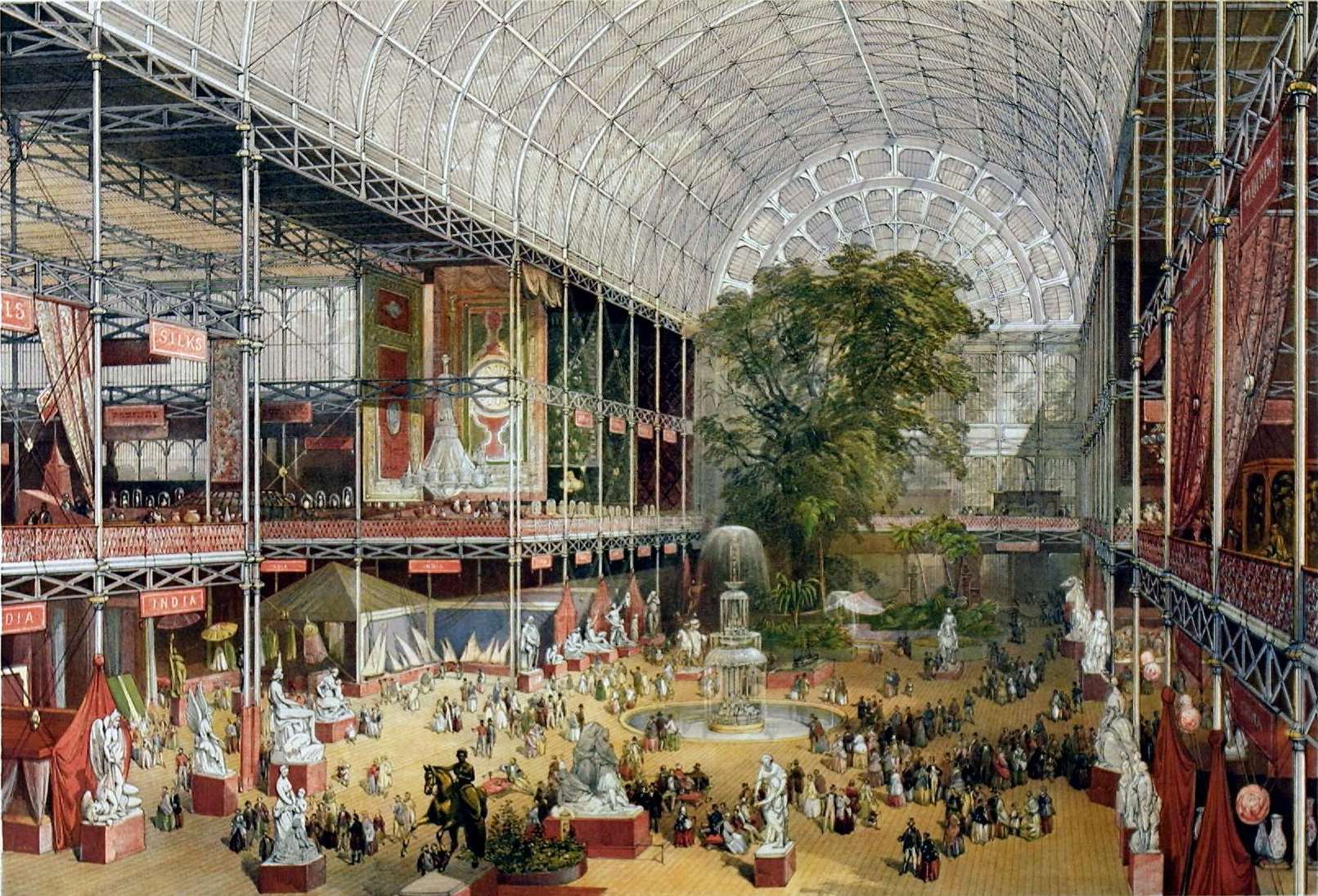
On 11 October 1851, the last day of the Great Exhibition, some 53,000 people visited the Crystal Palace. Although there was ‘a slight sprinkling of the humbler orders,’ according to The Times, most ‘belonged to the middle and wealthier classes, and consisted of habitués of the exhibition.’ By the end of the day the transept, where people had gathered even more than usual, was ‘packed with a dense mass of black hats’ through which an occasional bonnet could be spotted. Just before five o’clock Osler’s crystal fountain stopped and the crowd grew silent. The organs began to play the national anthem, and those in attendance turned their faces upward and sang along. Because of the size of the building and the distance between them, however, the organs were unable to stay together and so the singing of ‘God Save the Queen’ was, in the words of The Times, ‘a very discordant demonstration of loyalty.’ Then everyone cheered and slowly made their way to the exits to the pealing of bells.
from Auerbach, J, The Great Exhibition of 1851. see also, and also.

3 comments:
What a fucking horrible place to have been that particular day, if u were anything like me. There must have been 'people like me', even then though. Republican anti-imperialist rabble-lefties? Pity a bomb didn't go off.
Well, besides thing such as 'shilling days', which were exactly how they sounded, there were all kinds of peripheral organisations trying to get involved, including some early workers ones, chartists and so on, plus all the usual paternalist ones. It was only a few years after 1848, of course, so there were all kinds of worries expressed at the top level...
I'll see if I can put together a post about the politics and working class culture of the crystal palace at some point, I'll have to write about it anyway...
I'll see if I can put together a post about the politics and working class culture of the crystal palace at some point, I'll have to write about it anyway...
...go read All That Is Solid Melts Into Air, forthwith!
There's an argument (might have been made by Hobsbawm? Will check it up) that 1851 and the Crystal Palace marked the triumph of the new industrial capitalism after a decidedly shaky start where, between 1820-1848, it looked like it could have been a brief, abortive experiment. It's worth finding out what the Chartists (who had only very recently been defeated at that point) thought of this whole farrago.
Post a Comment